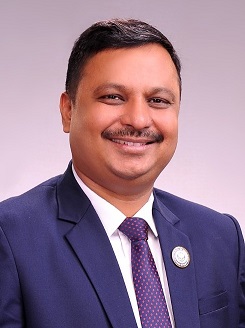Auditors are not expected to find frauds but they must follow processes: NFRA Chair
Auditors aren’t expected to detect frauds, but they must follow the due processes laid down in the regulation, stressed India’s accounting watchdog National Financial Reporting Authority’s (NFRA) chairperson Ajay Bhushan Pandey.
“…it is immaterial whether you are expected to find fraud or not, but what is material is you are required to follow the (due) processes. And if you have followed the process and in that process you are able to find fraud, it’s fine, and even if the fraud is not found, but you have followed the process, you are not responsible,” NFRA Chair Pandey said at ASSOCHAM’s third international conference on Financial Reporting and Control on Friday.
The NFRA chair pointed out that it is more of a mindset or understanding gap than an expectation gap that auditors are expected to find frauds or not.
The audit watchdog had earlier this month issued a circular saying that auditors need to report all kinds of frauds beyond certain thresholds to the government and not only the ones where they have only identified.
“Question biz rationale”
The NFRA boss also emphasised auditors must question the business rationale and show greater professional scepticism, highlighting that the community has a role to understand an entity’s business, its operating environment, and the overall structure, etc.
I have seen auditors come to us (saying) we cannot go into business rationale. But let’s say an entity has given Rs 100 crore to one of its group entities or associates where the businesses are completely unconnected, then (should they not question) why it is giving Rs 100 crore?… There has to be some business rationale as to why that money was given..
Likewise, the auditors must question the business rationale and show greater professional scepticism in related party transactions also, he said. In fact, the management should encourage the auditors to ask more questions and not frown upon them showing professional scepticism, he added.
The NFRA chairperson also said auditors must obey the rules both in spirit and law stressing that they can’t selectively pick one against the other and instead must keep them both in mind together.
I find it a little amusing that supposedly if you don’t have to follow the rule you say it is principle-based, but supposedly if you find a rule is suitable to you, you literally follow the rule and not go into the spirit…the principle is the spirit….the law is very clear. It is the rule as well as the principle which have to be both kept in mind.
“Audit documentation is important”
The NFRA chief also highlighted the importance of audit documentation for the auditors.
The audit documentation must be done in a manner, he said, that the documents should speak for themselves even when the auditors are not there to explain them. “The audit has to be a thinking audit and not a tickbox audit,” he emphasised.
“Appointing board advisories is a good trend, but strengthen existing governance too”
The NFRA chief also noted that the companies in recent times are increasingly appointing advisors on their Board to shore up governance. He described this as a good trend but added that these companies should at the same time look at strengthening the existing governance structures including the institutions of independent directors, audit committees and statutory auditors.
“Auditors should be compensated fairly”
Pandey also stressed auditors need to be compensated fairly stressing that it is not a routine job they are doing but an important role they play in building trust in financial statements. “You have to empower the auditors, you have to build their capacity and they have to be compensated fairly,” he said.
“NFRA is not a villain”
The NFRA boss also urged that the accounting regulator should not be seen as a villain and that its disciplinary orders should not be seen as merely punitive but instead, he stressed the new watchdog should be looked upon as someone assisting the profession as a whole.
NFRA was created in October 2018 as the country’s independent audit regulator following a Rs 1-lakh crore fraud at construction financier IL&FS. It was established on similar lines to the Public Company Accounting Oversight Board (PCAOB) in the US and Financial Reporting Council (FRC) in the UK.

